If you recently added a little Corgi to your family, there is a chance that you have teeth marks all over your body. This isn’t some horror-movie bloody mess – but it sure isn’t fun! So why is it that your puppy wants to bite and bite at your feet, hands, and everywhere else?
Well, there are many reasons for this behavior. Your dog uses its mouth like we use our hands. It’s crucial that you know this information because it will make them much less annoying in certain situations.
We’ll cover all those reasons in this article, but the more important thing here is to teach you how to train your Corgi to stop biting. Just like with other dogs, the difficulty can vary.
Some dogs are more prone to biting at everything, while some get over it quickly in their youth. A Corgi, as you very well may know by now, is in the first category. When young, they will bite at everything they see. Sure, that’s fine during the teething period – but it can get quite annoying if it doesn’t stop.
Well, don’t worry. We plan on giving you a step by step guide to help you train your best friend. We can’t promise that we’ll turn you into a professional dog whisperer, but hey – it’s a start. Now, as we said, there are levels of difficulty that you may encounter.
These levels depend on a couple of factors: the age of your Corgi, its temperament, etc. But with all that said, it’s really up to you. Just like with all training, persistence is key. You can’t teach your dog anything if you don’t try and try for as long as it’s required.
So let’s say goodbye to those bitemarks. Let the training begin!
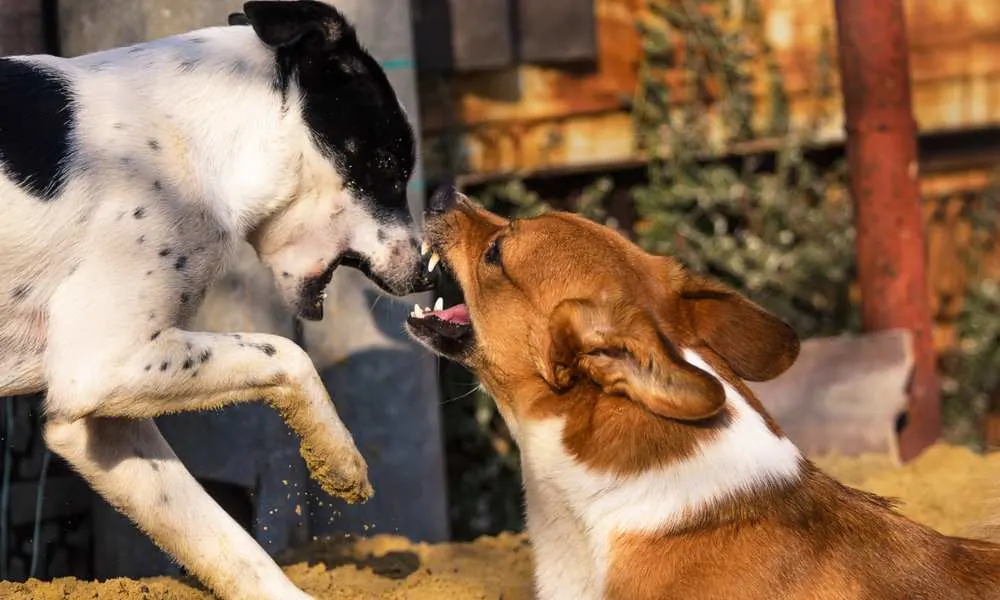
Why And When Do Dogs Bite?
The first thing that you have to do when trying to get rid of a specific behavior is figuring out why it’s there in the first place. Your puppy doesn’t bite you for biting’s sake. There’s always a reason.
So why is your Corgi biting you?
Well, depending on age, there are a couple of most common reasons that make your Corgi nibble at you:
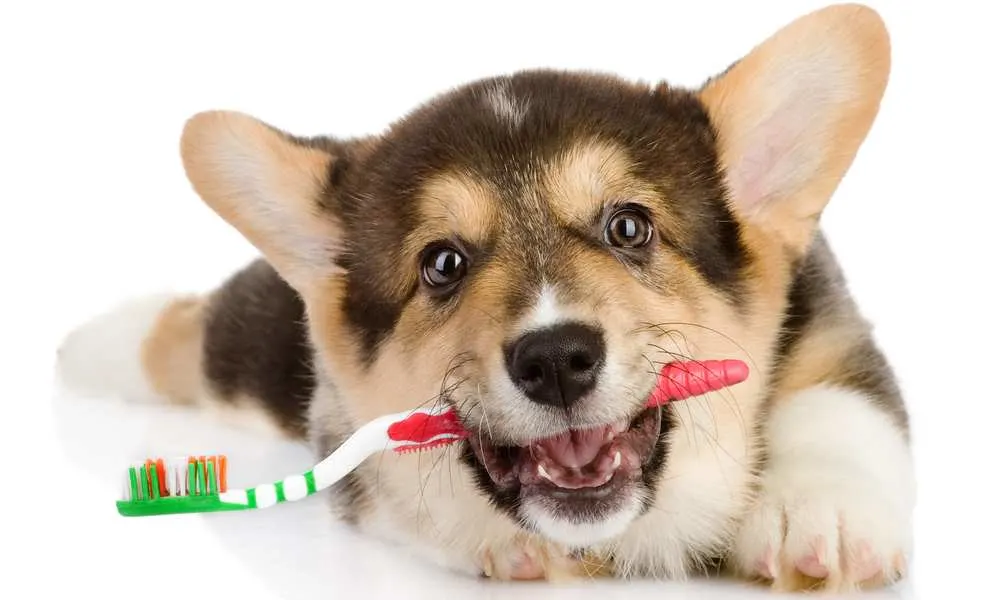
Teething
We put teething at number one because, during this period, your dog won’t really bite you. The teeth come in at about six months of age. During the period in which they’re growing in – your puppy will bite at anything he sees: your hands, slippers, remotes, etc.
There are chew toys that will help you with this period specifically. And you need to understand that your puppy doesn’t like the fact that there are teeth growing in its mouth. The important thing is to teach them that using its mouth to bite is not acceptable behavior at a young age.
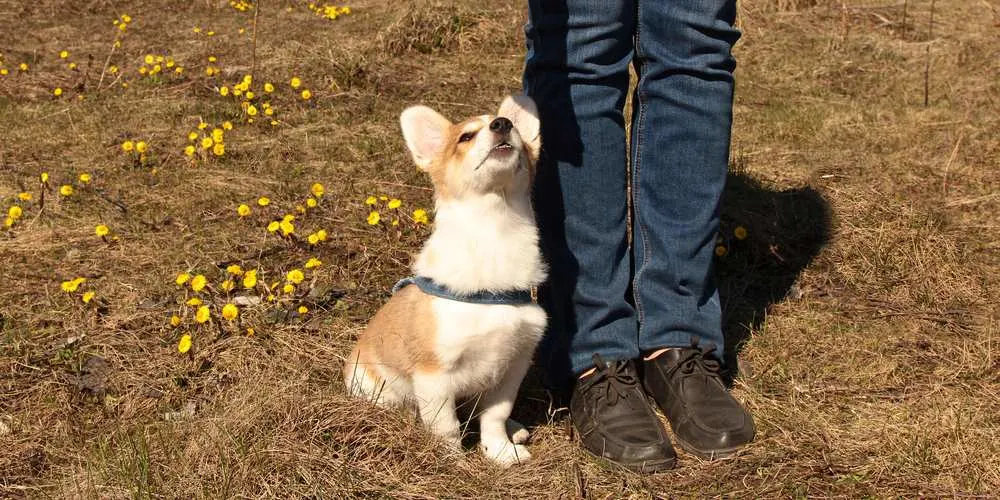
Protection
Whether it’s protecting itself, you, or other puppies – your dog will try and bite if it feels that it is in danger. If you have multiple dogs, there is probably a leader – that leader will protect the others if there is a treat.
Protecting territory is not out of the question either. Your dog takes its territory very seriously.
Mothers are known to be quite fierce when protecting their puppies.

Startling
Your dog doesn’t like surprises. If you wake it up in a way that would lead it to believe that it’s in danger – it will try to bite you to protect itself.
It’s not just waking up; when startled, your dog will protect itself in the heat of the moment.
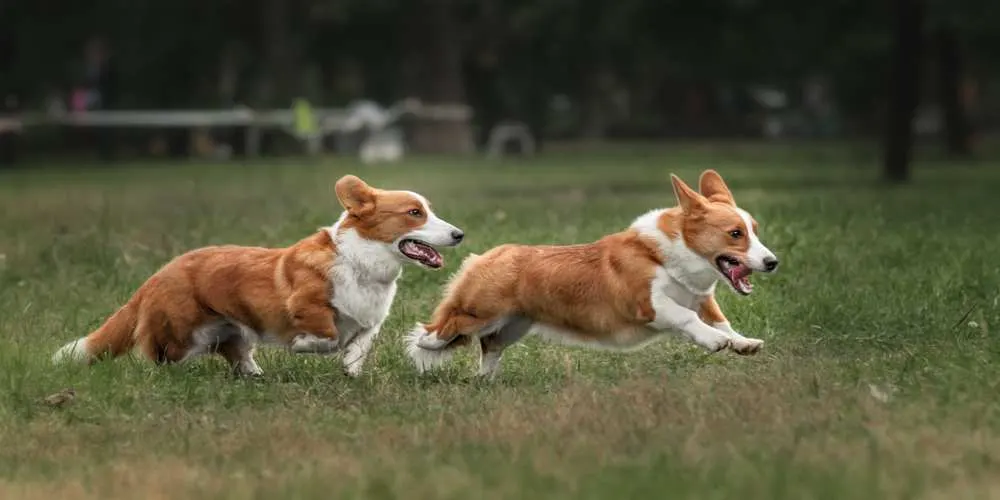
Running Away
You’ve probably heard that you should never run away from a dog. That’s not a myth! When you run from a dog, you risk triggering a thousand-year-old behavior.
That behavior can be a predatory or a herding one. Your Corgi will probably try and herd you in this situation. It’s not their fault, though; this is not something that they can control.
So even if it’s part of the fun, never run from your dog!

Injury Or Illness
This is something that not a lot of people think of when their dog is aggressive towards them. We admit it is more common for your dog to be scared or look down and depressed in these situations but aggression is another way of showing pain.
It’s not exactly a clear message that says, “I am in pain.” But if your dog is hurt or sick, he may just not want to be touched by anybody. In these situations, they get scared, and fear means aggression.
So there we have the why. Dogs can bite to protect themselves, and they can bite to protect others – but you need to know that they can bite. Your puppy is cute; we know. A Corgi especially!
But cuteness has nothing to do with aggression. For instance, your Corgi is a cute, small, short-legged puppy with a funny walk and always carries a smile. But those short legs are there to bite at the heel of the herd they were protecting. If a part of the pack goes stray, Corgis used biting to get them back. We know that they can’t’ compare to, say, a Doberman – but your Corgi can bite you.
So as long as you keep that in mind, your training will go on smoothly. So let’s get to the training part.
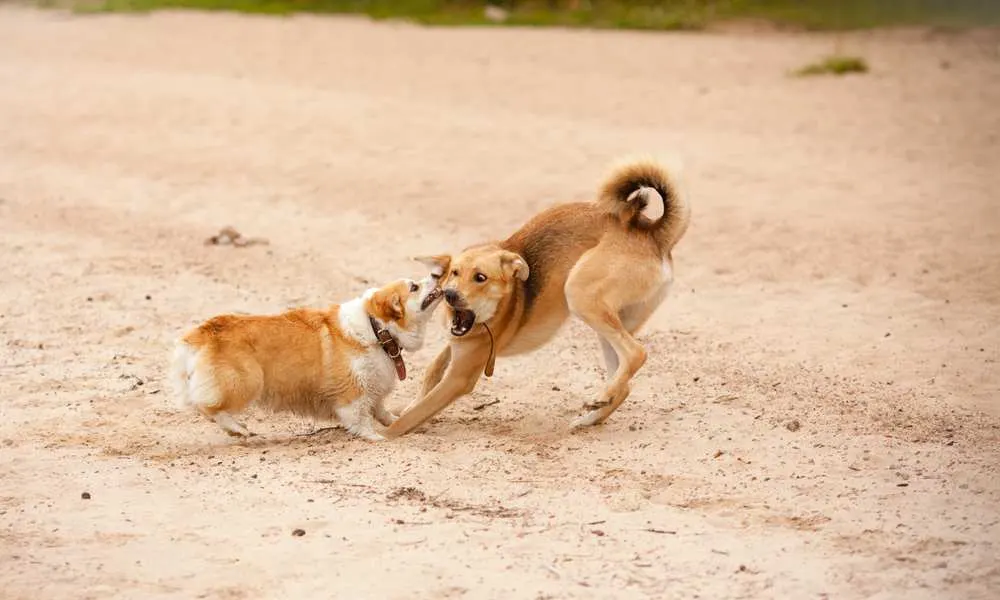
How To Train Your Corgi To Stop Biting?
Training your dog to do anything is a simple yet time-consuming task. Your puppy will learn anything you throw at it. Some things will stick easier than others though, that depends on you and the dog. Well, mostly you, to be honest.
The tried and tested method of dog training is positive reinforcement. There have been others throughout the years. Punishing your dog when it does something wrong is unfortunately still one of the most popular ones. But the thing is, there is no evidence that that method works. There is, on the other hand, plenty of evidence in support of positive reinforcement.
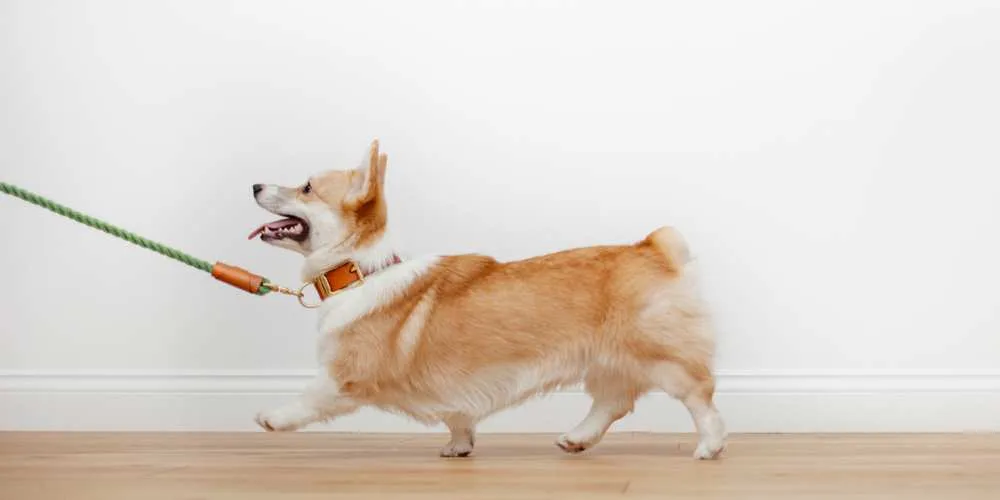
Positive Reinforcement
While on the subject, we may as well start with this method. In its essence, it’s quite simple. When your dog does something good, you reward it. You decide what that reward is. It can be a treat, playtime, or just some verbal encouragement. Basically, anything that’ll get their tail to wag.
The only thing that we have to mention is that you shouldn’t reward everything. This is a hole that people sometimes fall in. The thing is that your dog jumping around and doing whatever you say just to get a treat is not really a great thing if you’re not careful. You always have to make sure that you’re the one in charge. Your puppy may not be able to do algebra in its free time, but it knows how to use its cuteness, that’s for sure.
But how should you handle biting with this method? Should you feed your Corgi treats while it’s silent?
No, that’s not a great plan. Corgis have a reputation of being loud dogs, we agree, but all you’ll get with that method is a chubby little puppy.
It is a bit tricky, but all you have to do is make sure that the dog knows the reward. If it tries to bite you, that is to say, if it tries to use its teeth to get something from you. Speak with authority, let the dog knows that biting is not acceptable. When and if it stops – reward it. It’s as simple as that.
This kind of training is meant for cases that are not extreme. If your dog is growling at someone, you must first resolve the situation before even attempting to implement any training method.

Obedience Training
Training your dog to stop biting can be a bit of a hassle. Biting is something that comes naturally to your puppy. You can see dogs biting at each other all the time, but it just isn’t socially acceptable. Plus, it can be very uncomfortable if your dog tries to bite someone you’ve never met.
You must first do some obedience training before you try to do anything more serious. By doing this, you train your dog to obey your command and listen when you’re speaking.
Your puppy can have a tough time focusing when you are outside, and if you add a crowd to the mix and you get an overwhelming situation for your pup. It helps if your dog already has the habit of focusing on what you’re saying; if your dog knows that there is something in for it when you’re speaking – training and drawing attention gets much more manageable.

Socializing
One of the essential factors in whether or not your dog will be prone to biting is socialization. This means that, from an early age, you need to teach your dog how it should behave around other dogs. This is a simple task; just make sure that it’s around other dogs!
Our puppies are social animals, so teaching them these skills is not really that necessary. But if your Corgi doesn’t get to play with others while young, there could be potential problems.
We’re saying that it’s much harder to teach an old dog how to behave in groups than a young pup.
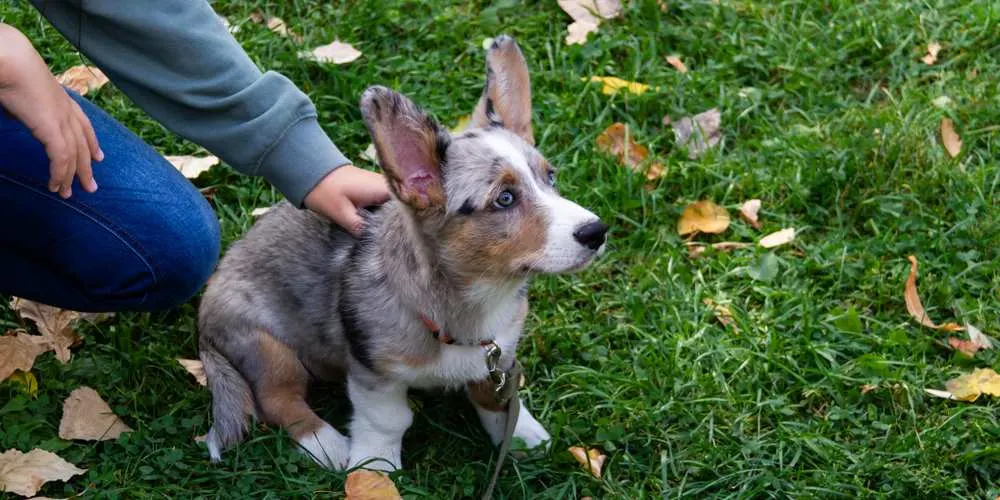
Proofing
In the end, you need to do one final thing. Once you manage to teach your puppy a trick or two, there comes a time for proofing.
Proofing means that you need to put the newly learned command to the test. You do this by taking your dog to an uncomfortable and new environment. Once you’re there, use this chance to make sure that your puppy still obeys you, even with all the distractions.
The principle is the same, only in a different location. This is very important because you need to know that your commands work wherever you go. This way, you can feel safe knowing that the chances of your dog attacking someone are incredibly low. And that’s a nice feeling, let us tell you.

Body Language
Knowing how to read your dog’s body language is incredibly important. Sure, there will still be a language barrier between you two, but you will understand its emotions, and that is crucial in training and owning a dog in general.
Ears Back, Tail Between The Legs
This is a classic fearful stance that can mean a couple of things. Your dog is scared of something; that much is for sure. If you raise your dog’s voice, it can go into this stance, but many things can cause it. The important thing to know is that this could lead to aggression.
Your dog won’t attack you from this stance, but if it’s accompanied by growling – stay away. Growling is the most obvious warning that your dog can give you. If you get said warning, listen to it.
Chest Out; Ears Pointed Up, Tail Straight
This stance is usually just a careful one. Your puppy stands like this when it’s meeting new dogs or people. It’s a kind of an all-arounder; in it, the dog is not scared but is ready for anything.
Usually, this is the one you shouldn’t be worried about. But if the new person or dog is giving you a different vibe, be careful. It is just as important to know how to read other dogs as well as your own. As always, if you hear a growl – get you and your dog out of the situation.
These are the most obvious things that you should keep an eye out for. There are others, but they are pretty well connected to these. It is simple, if your puppy is scared – make sure to resolve whatever is scaring it. Fear is the most common gateway to aggression in dogs. Your pup gets anxious about something and then does whatever its instinct tells it to.
Learn More: Are Corgis Trainable? How Long To Train A Corgi?

Are Corgis Known For Biting?
Are Corgis biters? That’s a good question.
We have to take a look at its history, a quick glance will do the trick to find out. We mentioned that herded tend to have the instinct to use biting to control a situation. Are Corgi herders? They absolutely are.
Does that mean that Corgis are biters? Well, it can mean that. But there are just too many factors that we need to look at to determine. We can’t feel confident enough to make a call about a whole breed of dogs.
Your Corgis behavior depends on you, not the breed. Dogs mimic our tendencies. That doesn’t mean that it will start walking on two legs or that they’ll start doing taxes, but they will pick up on your mood.
If you are aggressive, your dog will be aggressive too. And that may just be the most important sentence of this article. Your dog’s behavior is complex, and when we say aggression – we mean a couple of things.
Most commonly, aggression is a product of anxiety. Having an anxious dog means that it’s not emotionally stable. And if it can’t control its emotions – then it can’t control its teeth. Simple as that.
You need to give your dog a calm environment that will help it realize what’s a treat and what isn’t. Biting is, after all, just a defensive mechanism. It always comes after a growl or some other sign that you should know how to spot.
Dogs don’t just bite out of the blue. Growling is always there, and you shouldn’t get angry when your dog makes this scary sound. Sure, it may seem like the kind of thing you shouldn’t be letting your dog do. But, it is a way in which your dog can say: “watch out, I’m not happy with this situation.”
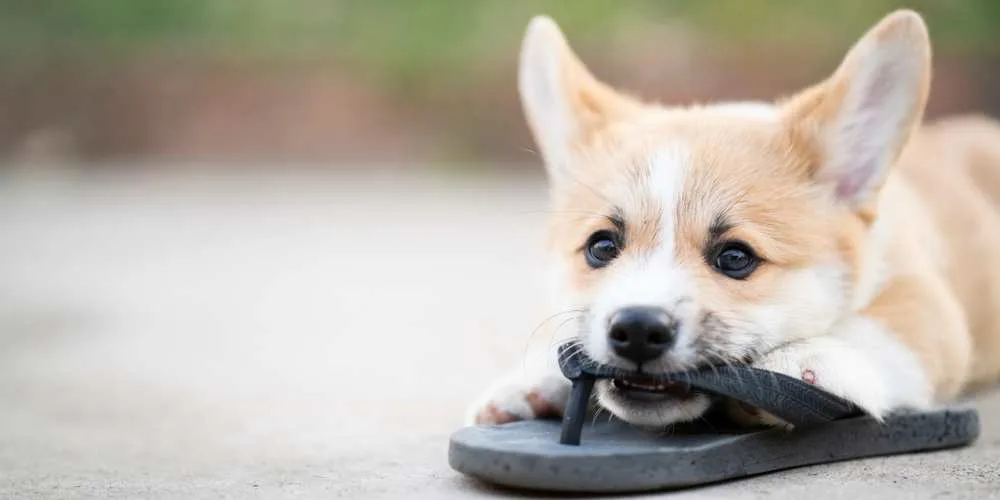
When Do Corgis Stop Biting?
There is a chance that your Corgi is biting you or someone else on the count of its age. It is an important factor, and people always wonder when it will stop?
Well, your puppy’s teeth come in at around the six-month mark. So you can expect teething in the first period of its life. If you’ve, for instance, adopted an old dog, and it’s still biting people. You need to be careful. There are probably other factors involved, and if you can’t figure them out on your own – seek professional help.
A dog should calm down with age, not act out.
Learn More: How To Train A Corgi To Come?

Final Words
Well, here we are; and we hope that you’ve learned a thing or two.
To summarize one last time: first comes the obedience training; after that, use positive reinforcement to make sure that your puppy feels good when executing one of your commands. Proof your practice, and you’re done.
Whatever you do, just don’t rush this whole operation. Persistence is key; remember that. Your dog possibly biting you or someone else can be a scary thing, and you need to be prepared for such a scenario.
Know your Corgi, and you should be fine. They always want the best for you, even when they are a little scared. So make sure to always do what’s best for them.
Learn More: How To Train A Corgi To Heel?

